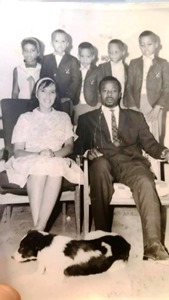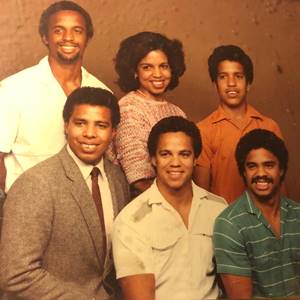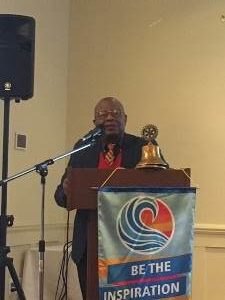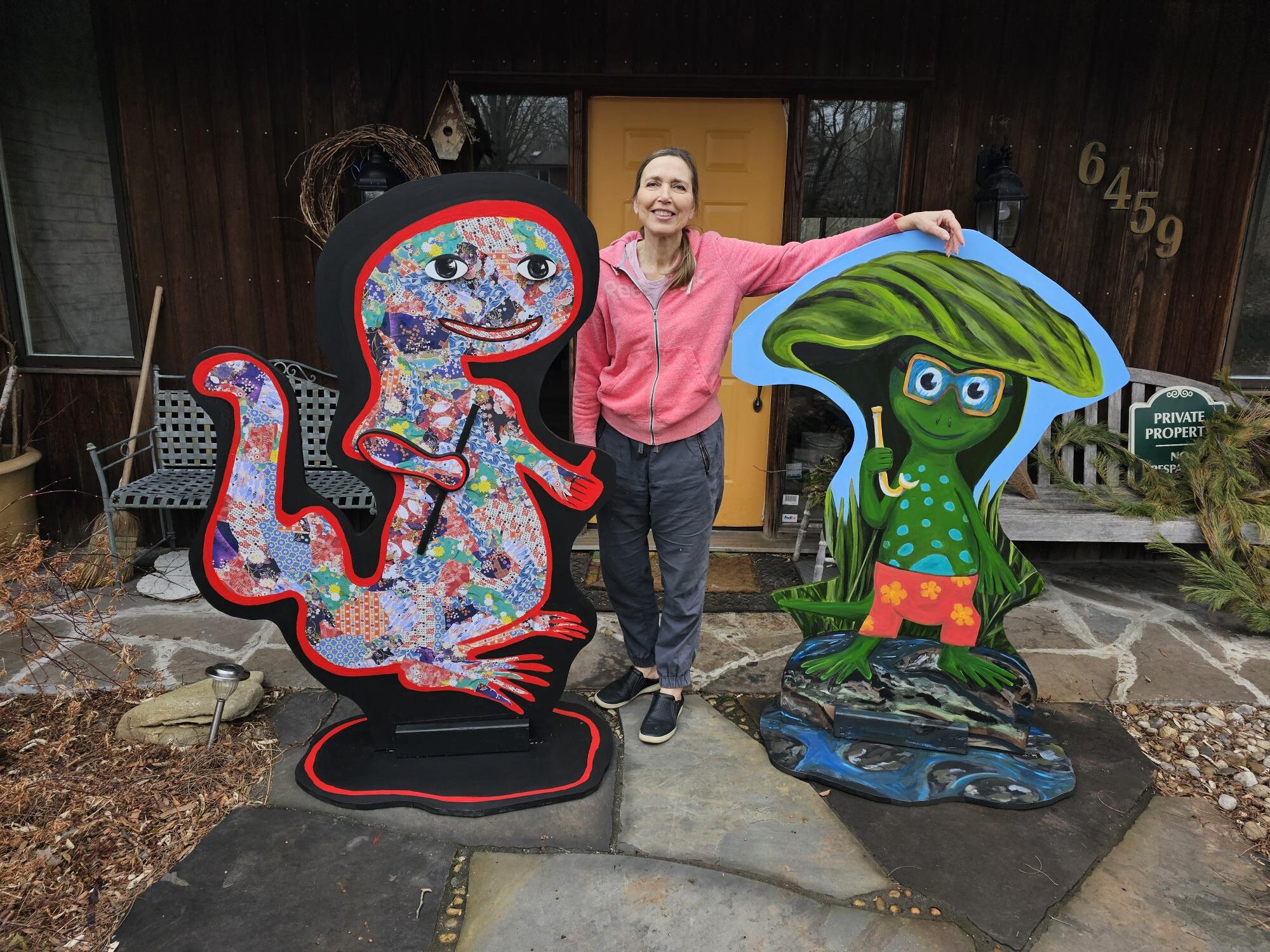By Milla Pickfield
Black History Month. When it was suggested that I could interview Rene Papin (my father’s close friend since the age of nine) as his was one of the first black families to live in Burlington, it sounded perfect, since in some ways I can identify as being BIPOC [Black, Indigenous, People of Colour] in a city that for decades has traditionally been known as a white Anglo-Saxon community. I was born in China and came to Canada in 1996, and my brother, born in 1998 at Joseph Brant Hospital, is of Korean and Vietnamese biological background. My mother, who is white, shares the story of a man coming up to her in a store, stunned that she would be carrying a baby that didn’t look like her even remotely, let alone didn’t come from her stomach. He was nonplussed. Tyler and I always knew how to navigate ourselves in stores (i.e. stay close to our parents) when people would look at us, wondering if we were up to something. But I digress — those stories I can share in another article.
Rene Papin, born in British Columbia in 1958, is part of a fascinating family. His mother Helen (who raised all six Papin children to have empathy) was from Lethbridge, Alberta, and his father Rupert from Ghana. When his father was offered a position as the Canadian International Development Agency (CIDA) ambassador to Africa from 1961 to 1966, the family would come back to Alberta each summer (that was a culture shock each year!). In 1966, the family permanently relocated to Burlington, making them the first Black family in Aldershot. Mr. Papin, as Rupert Papin is fondly referred to, started as a French teacher at Aldershot High School, where his students recall that he made learning French fun, and eventually became a guidance counsellor and mentor to the growing Aldershot community.

Mr. Papin’s position as a teacher and guidance counsellor put him in a unique position: one where he was able to guide and interact with the students as they progressed into early adulthood. Questions surrounding race and oppression were welcomed by Mr. Papin, who understood that the turmoil at the time in the U.S.A. was weighing on everyone’s mind. Rene recalls the period of time after Rev. Martin Luther King Jr. and then Robert Kennedy were shot, when cities were burning and the National Guard was called in. Students were struggling to understand why the U.S. was in such turmoil and Rene remarks, “My dad became the man to ask these questions to.”
Mr. Papin trail-blazed his way into the Aldershot community and the hearts of his students, and became a fundamental figure in the community. Rene remembers when his father was invited to join the Lions Club, which at the time was revolutionary, as the club had previously consisted of only white men. Rene recalls, “My dad always seemed to represent what things ’could be’ opposed to ‘what they are’.” Mr. Papin strived to teach his students a perspective of inclusion and understanding and this made a lasting impression. Rene notes that many of his father’s former students still come up to him and reminisce on Mr. Papin’s impact in shaping how they view the world and the difference he made when he moved to Burlington.
There were two “aha” moments in the conversation with Rene. The first was when Rene shared that, yes, when they were walking home from school on Plains Road, someone would open their window and call him the “N-word,” it was obvious that there were people uncomfortable with their family’s presence in Burlington. Yet far more important were the countless people working behind the scenes to lift the presence of Mr. Papin and to provide opportunities where he could break barriers and do the amazing job of bridging gaps, and bringing people together in dialogue. As a guidance counsellor, Mr. Papin was always found in private conversations with people about all kinds of issues that impacted daily life, and he was constantly sought out for his insights. Rene is grateful for the wisdom of the community members who recognized the gifts his father provided and were advocates behind the scenes (without accolades or recognition) to constantly support him.
Rene, as the oldest of six children (five boys and one girl), shared that the Papin family had dinner conversations daily where they were expected to speak their mind and together navigate the challenges they were facing, so they could go out and be strong each day. Rene recounted the story of winning the role of president of the Student Union at his university — people were shocked at how someone representing 1% of the student population could have won (they presumed with the name Rene Papin that he was French). Rene knew he was in for a battle and before meetings, he would take the time to take deep breaths, put his shoulders back, and walk into the meeting facing the opposition squarely and with confidence.

When I asked Rene about his father’s deepest legacy, 60 years later, it was simple — he taught students, colleagues, and community members that it’s not about judging a person by the colour of their skin or by the religion they practice — you value a person for what they contribute and the efforts they bring to making their community stronger and more vibrant. The Papin family contributed to Aldershot in abundance and I personally am grateful for the roles they have all played (matriarchal and patriarchal wisdom, successful leaders in sales, community builders and leaders, hockey stars with scholarships, superb math teachers, and Richelle Papin, the only daughter, became the first Black school board trustee in Halton — the list is long and inspiring), as well as roles the community played in recognizing that everyone is richer when diversity is inclusive and embraced.
While Burlington may have been considered “lily white,” and at the time of the Papins arrival, perhaps many attitudes towards BIPOC were reflective of the era, I’d like to believe, as evidenced by Rene’s story, that Burlingtonians were progressive beyond their time…and that speaks volumes about the community that I call home.





